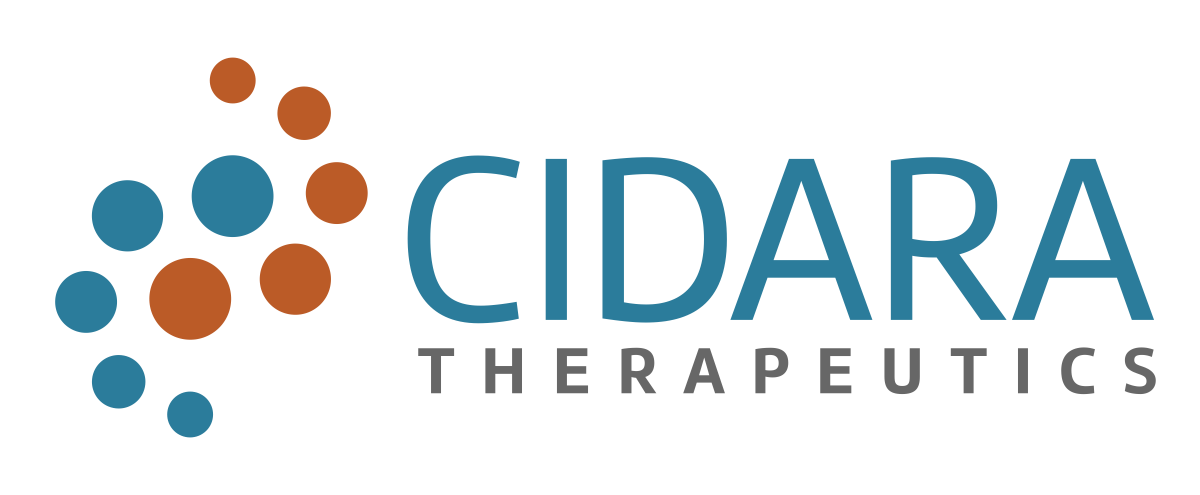Orphan designation follows QIDP and Fast Track status for CD101 IV
SAN DIEGO –
Cidara Therapeutics, Inc. (Nasdaq:CDTX), a biotechnology company
developing novel anti-infectives and immunotherapies to treat fungal and
other infections, today announced that the U.S. Food and Drug
Administration (FDA) has granted orphan drug designation to its
antifungal drug candidate, CD101 IV, for the treatment of candidemia and
invasive candidiasis.
Orphan drug designation of CD101 provides Cidara eligibility for seven
years of market exclusivity in the United States upon FDA approval, a
waiver from payment of User Fees, an exemption from performing clinical
studies in pediatric patients, and tax credits for the cost of the
clinical research. The seven-year period of marketing exclusivity
provided through orphan designation combined with an additional five
years of marketing exclusivity provided from the previously announced
QIDP designation positions CD101 IV for a total of 12 years of potential
marketing exclusivity to be granted at the time of FDA approval.
“This designation underscores the need for new drugs to treat severe
fungal infections and is another in a series of milestones that
demonstrate the promise of our novel, long-acting echinocandin, CD101
IV,” said Jeff Stein, Ph.D., president and CEO of Cidara. “Our Phase 1
data demonstrating the safety and tolerability of up to three doses of
high exposure, once-weekly CD101 IV enables us to initiate our Phase 2
study in candidemia early this year. We believe CD101 IV has the
potential to become a best-in-class echinocandin antifungal.”
Cidara is developing CD101 IV for the treatment and prevention of
serious fungal infections that are associated with high mortality rates
and rising drug resistance. Current standards of care for invasive
fungal infections, including azoles, have multiple limitations including
drug interactions and dose-limiting toxicities. First-generation
echinocandins require daily IV dosing, limiting their use primarily to
the inpatient setting.
In January of 2016, Cidara reported data from the company’s Phase 1
multiple ascending dose (MAD) clinical trial of CD101 IV, which
demonstrated excellent safety and tolerability across a broad range of
doses. The company plans to initiate a Phase 2 candidemia trial in the
first half of 2016.
About Candidemia/Invasive Candidiasis
Systemic Candida infections include candidemia and related cases
of invasive candidiasis. Candida is the leading cause of
bloodstream infections within U.S. hospitals. Systemic Candida
infections are considered to be serious and life-threatening, with up to
47 percent mortality. These infections represent a significant public
health issue, particularly in highly vulnerable patient populations at
risk for infection, such as the elderly, post-surgical, critically ill
and other hospitalized patients with serious medical conditions.
About Cidara Therapeutics
Cidara is a clinical-stage biotechnology company focused on the
discovery, development and commercialization of novel anti-infectives
for the treatment of diseases that are inadequately addressed by current
standard-of-care therapies. Cidara’s initial product portfolio comprises
two formulations of the company’s novel echinocandin, CD101. CD101 IV is
a long-acting therapy for the treatment and prevention of serious,
invasive fungal infections. CD101 topical is for the treatment of
vulvovaginal candidiasis (VVC) and recurrent VVC (RVVC), a prevalent
mucosal infection. In addition, Cidara has developed a proprietary
immunotherapy platform, Cloudbreak™, designed to create compounds that
direct a patient’s immune cells to attack and eliminate pathogens that
cause infectious disease. Cidara is headquartered in San Diego,
California. For more information, please visit www.cidara.com.
Forward-Looking Statements
Statements contained in this press release regarding matters that are
not historical facts are “forward-looking statements” within the meaning
of the Private Securities Litigation Reform Act of 1995. Because such
statements are subject to risks and uncertainties, actual results may
differ materially from those expressed or implied by such
forward-looking statements. Such statements include, but are not limited
to, statements regarding the effectiveness, safety, long-acting nature,
anticipated human dosing and other attributes of CD101 IV and its
potential to treat infections, the incidence of fungal infections, and
the effectiveness of and treatment protocols for competitive therapies.
Risks that contribute to the uncertain nature of the forward-looking
statements include: the success and timing of Cidara’s preclinical
studies and clinical trials; regulatory developments in the United
States and foreign countries; changes in Cidara’s plans to develop and
commercialize its product candidates; Cidara’s ability to obtain
additional financing; Cidara’s ability to obtain and maintain
intellectual property protection for its product candidates; and the
loss of key scientific or management personnel. These and other risks
and uncertainties are described more fully in Cidara’s Form 10-Q filed
with the United States Securities and Exchange Commission (SEC), under
the heading “Risk Factors.” All forward-looking statements contained in
this press release speak only as of the date on which they were made.
Cidara undertakes no obligation to update such statements to reflect
events that occur or circumstances that exist after the date on which
they were made.
View source version on businesswire.com: http://www.businesswire.com/news/home/20160210005427/en/
INVESTORS:
Westwicke Partners, LLC
Robert H. Uhl, 858-356-5932
Managing
Director
robert.uhl@westwicke.com
or
MEDIA:
Sam
Brown Inc.
Chris Seger, 631-428-1517
christopherseger@sambrown.com
